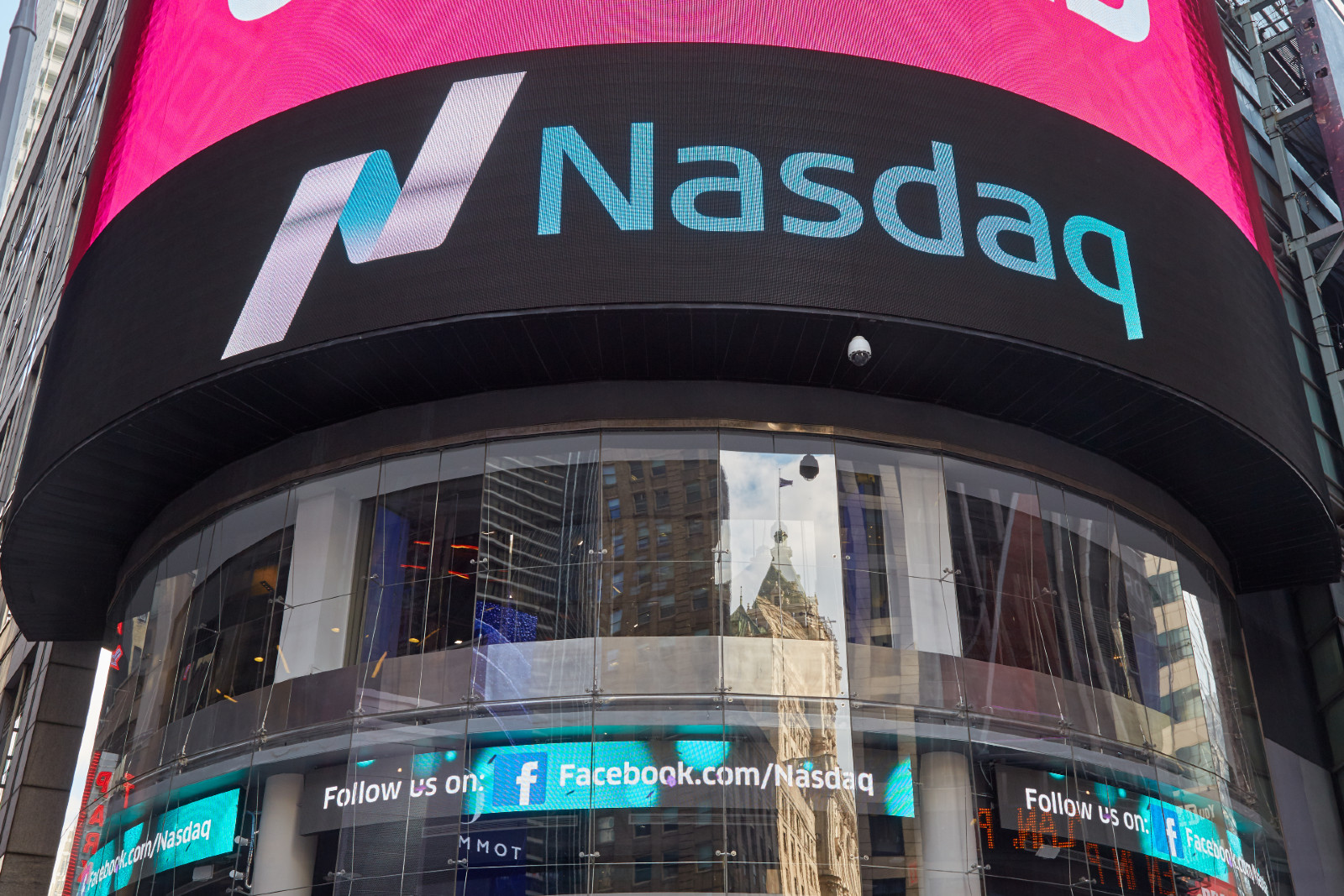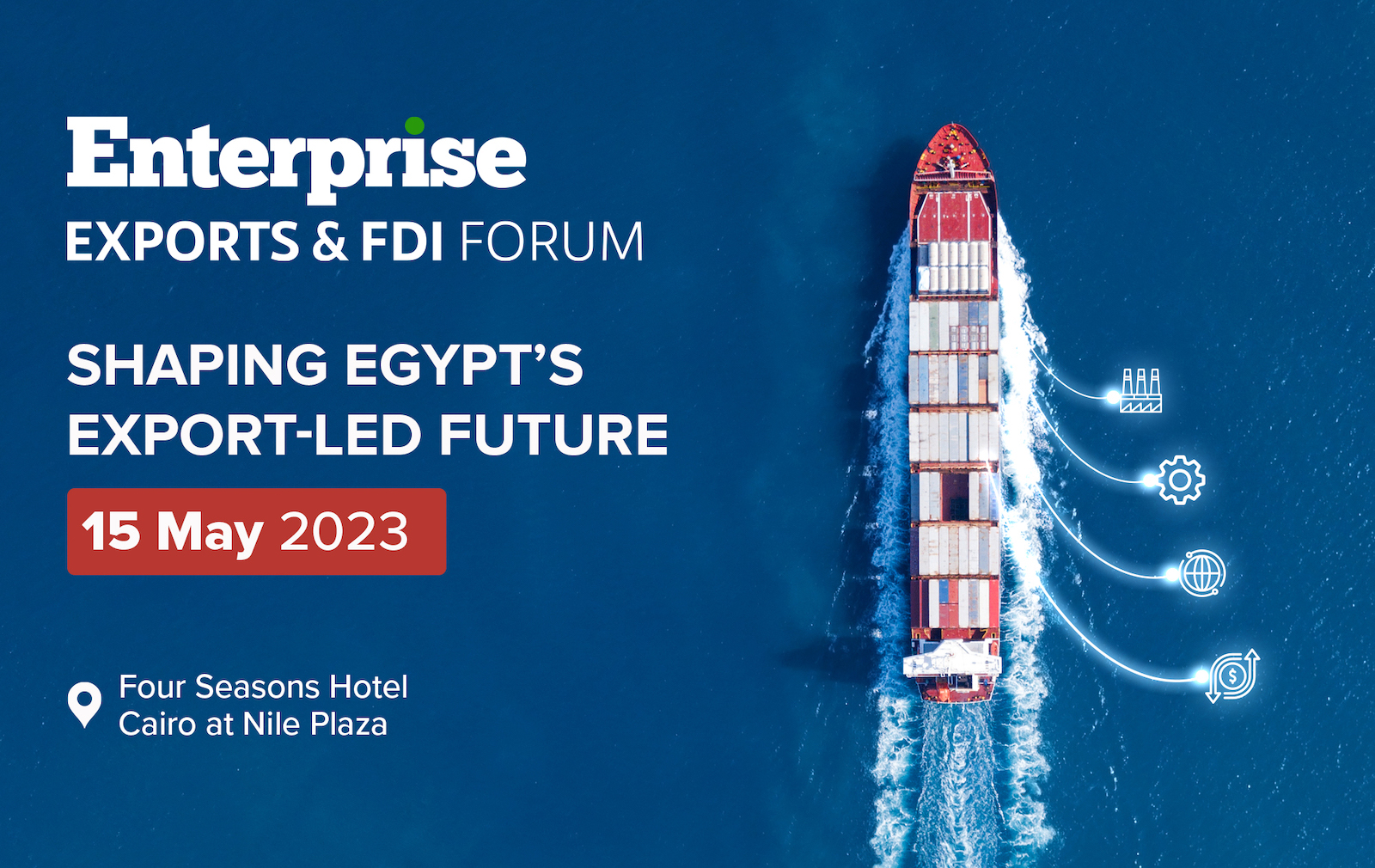- Industrial and Commercial Bank of China lists green bonds worth USD 2.2 bn in Dubai. (Climate Finance)
- MENA’s hard-to-abate industry is in a race to decarbonize — but finance remains an issue. (Decarbonization)
- Japan is gearing up to champion natgas and LNG at G7. (What We’re Tracking Today)
- Can lithium-sulfur batteries cut costs for the global EV industry? (Green Tech)
- BMW enters the hydrogen vehicles market with its iX5. (Around the World)
- Spain is reviving historic grapevines to salvage the wine industry. (On Your Way Out)

Wednesday, 1 March 2023
Industrial and Commercial Bank of China lists green bonds in Dubai
TL;DR
WHAT WE’RE TRACKING TODAY

Good morning, ladies and gents. Regional climate news continues to crawl at a snail’s pace, but we have a few updates on green finance and decarbonization efforts in the GCC.
THE BIG CLIMATE STORY- The Industrial and Commercial Bank of China listed four green bonds worth USD 2.2 bn on Nasdaq Dubai yesterday, saying proceeds from the bonds will be used for green financing in different jurisdictions and operations without disclosing any more detail. We have more details in the news well, below.
THE BIG CLIMATE STORY OUTSIDE THE REGION- Germany may not back the EU’s plan to ban the combustion engine by 2035, the country’s transport minister said yesterday, urging the bloc to take a more flexible approach that would not see an outright prohibition of fuel-powered cars. (AP | Reuters | Bloomberg)
ICYMI- Egypt’s long-awaited hydrogen strategy — which has been in the works since 2021 — is set to be released within weeks, leading Enterprise to ask private-sector players and industry experts what they hope to see as they plan to establish green hydrogen plants in the local market.
WATCH THIS SPACE #1- Banks need to show renewable projects a bit more love: Global banking needs to invest USD 4 to every USD 1 invested in fossil fuels by 2030 to limit global warming in a 1.5°C scenario, Reuters reports, citing BloombergNEF research. Energy analysts found that banks gave 81 cents in financing support to low carbon energy projects for every USD they provided to fossil fuels in 2021. Financing totalled USD 1.9 tn in 2021, with nearly USD 1 tn being allocated to fossil fuels and just USD 842 bn going to low carbon energy projects and companies, according to the report. The findings are based on compiled data from over 1.1k banks.
Global investments in energy transition technologies reached USD 1.3 tn in 2022, according to a recent report (pdf) by the International Renewable Energy Agency. Despite renewable investments increasing by 16% in 2022, the report stressed that the current pace is not sufficient, with annual investments needing to at least quadruple to stay on track with meeting global climate goals. The increased renewables funding will have to be coupled with divestment of USD 0.7 tn per year globally from fossil fuels to renewable technologies to achieve an energy transition in line with the 1.5°C scenario, the report concludes.
WATCH THIS SPACE #2- Japan is gearing up to champion natgas and LNG alongside renewables during its presidency of the G7, Reuters reports. Investments in natural gas and LNG are also on top of the meeting agenda as Japan scrambles to reduce its reliance on Russian gas. Investments in hydrogen and ammonia will also be on the agenda as the country looks forward to a green transition. The country will hold a ministerial meeting on climate, energy and environment in Sapporo on 15 April ahead of the main G7 summit in Hiroshima on 19 May.
|
***
YOU’RE READING ENTERPRISE CLIMATE, the essential MENA publication for senior execs who care about the world’s most important industry. We’re out Monday through Thursday at 4am Cairo / 5am Riyadh / 6am UAE.
Were you forwarded this email? Get your own subscription without charge here or reach out to us on climate@enterprisemea.com with comments, suggestions and story tips.
***
COME TO OUR NEXT ENTERPRISE FORUM-
We are delighted to share with you that the Enterprise Exports & FDI Forum will be taking place on 15 May at the Four Seasons Hotel at Nile Plaza in Cairo.
DO YOU WANT TO ATTEND? The first wave of invites is going out soon. If you’re a C-suite exec, exporter, investor, official, banker, or someone who should be part of the conversation, please click here to request a spot at this exclusive event.
What’s the Enterprise Exports & FDI Forum? It is the latest in our series of must-attend, invitation-only gatherings for C-suite-level business leaders. The Enterprise Exports & FDI Forum will discuss the critical topics of exports and foreign direct investment (FDI) in Egypt.
We will be taking an in-depth look into some of the most vital industry topics, including:
- How to effectively break into new export markets
- How to leverage domestic trends in order to create export opportunities
- What foreign investors are looking for
- What the government’s role should be
Why now? Exports and foreign direct investment (FDI) have never been more important to Egypt’s economy — or businesses — than in the wake of the float of the EGP. We think we have a once-in-a-lifetime chance to build an export-led economy that makes Egypt a magnet for FDI, and all the benefits that will come with it.
Think of the Enterprise Exports & FDI Forum as a hands-on lab for how to turn the devaluation of the EGP into something that will turbocharge your company and our economy.
Who’s on board? Some of the biggest names in business and finance are on board — are you? If you’d like to partner with us on the conference, ping a note to Moustafa Taalab, our head of commercial, here.
CIRCLE YOUR CALENDAR-
Egypt will host the CSR Forum from Thursday, 2 March to Sunday, 5 March in Somabay, Hurghada. The event aims to further discussions put forth during COP27 and boost private and public sector cooperation on climate action. You can register for the event here.
Qatar will host the Earthna Summit from Wednesday, 8 March to Thursday, 9 March in Doha. The event will bring together industry leaders and policymakers to explore tailored solutions for the energy transition in hot climates. You can register for the event here.
Oman will host Oman Sustainability Week from March 12 to March 16 in Muscat. The event aims to create discourse amongst leaders to drive change, and movement within businesses and communities towards adopting a sustainable lifestyle.
The Arabia CSR Awards is accepting applications until Friday, 30 June. The awardwinners will be announced during a ceremony on Wednesday, 4 October.
The first MENA Solar Conference is accepting applications from published researchers specialized in PV technology until Sunday, 30 April. The Dubai Electricity and Water Authority will be hosting the conference from 15 to 18 November, in conjunction with the Water, Energy, Technology, and Environment Exhibition and the Dubai Solar Show 2023. Researchers can submit their papers here.
Check out our full calendar on the web for a comprehensive listing of upcoming news events, national holidays and news triggers.
CLIMATE FINANCE
UAE-listed green debt gets a boost from China

The Industrial and Commercial Bank of China (ICBC) listed four green bonds worth USD 2.2 bn in total on Nasdaq Dubai yesterday, according to a Wam statement. Proceeds from the bonds will be used “to fund green financing in different jurisdictions and operations,” the statement added, without giving further details. The bonds are denominated in USD, CNH (CNY traded in the offshore market) and AUD. They have tenors of two and three years and were issued by ICBC’s branches in Dubai, Hong Kong, Singapore, and Sydney, the statement noted.
Another boost for green debt listed in the UAE: This new listing ups the value of green and suitability-linked debt issuances listed on Nasdaq to USD 21 bn, the statement noted. ICBC has a total of USD 4.88 bn in green bonds listed in the UAE, ICDB Dubai (DIFC) General Manager Luo Wei noted in the statement.
And for the China-UAE climate relationship: The green bond listing is an indication of the commitment by Chinese businesses to MENA’s green economy, China’s UAE Ambassador Zhang Yiming noted in the statement. We may expect further listings in the future, he said, adding his hope that this would continue to strengthen China-UAE cooperation on ESG issues.
DECARBONIZATION
High-emissions industries are working to decarbonize — but finance remains a challenge

MENA’s HTA industry leaders are in a race to decarbonize: Decarbonization has emerged onto the radar of the world’s high-emissions industries in a meaningful way — with 50% of recently surveyed business leaders saying they believe achieving net zero is more feasible than just a few years ago, according to a report (pdf) from UAE clean energy firm Masdar. Masdar surveyed 500 senior executives working in hard-to-abate (HTA) industries — energy, industry and transport — in MENA, Europe, North America and the Asia Pacific region, with 125 senior executives from MENA contributing to the report. A quarter of the survey respondents were from MENA, with the majority from KSA and the UAE.
MENA lags behind on net zero targets in HTA industries: 17% of the MENA survey participants said their companies plan to reach net zero by 2050. This compares to 44% of respondents from Europe, 45% from the US and 38% from Asia Pacific whose companies plan to reach net zero by 2050; and 7% of respondents from Europe and 7% from the US whose companies plan to reach net zero by 2030.
Across all regions, business is the key reason to decarbonize: For the majority (63%) of respondents, remaining financially competitive tops the list of their reasons to decarbonize — far outweighing climate considerations, which are a top reason to decarbonize for only 24% of respondents. Supplier demand is also listed as a top reason for many respondents (44%), as is customer demand (41%). 37% list investor or shareholder expectations as a top priority when planning decarbonization strategies and time frames.
New regulation from Europe is heightening the urgency: The European Carbon Border Adjustment Mechanism (CBAM) — which will impose a tariff on companies importing carbon-intensive goods to the EU, starting in 2026 — “will encourage companies in HTA industries to act,” the report notes. Firms operating in countries where decarbonization is more of a challenge worry about their ability to compete in the EU, it adds.
This gives some companies a competitive advantage: Emirates Global Aluminium (EGA) — which is already taking steps to decarbonize — has focused on emissions-reduction technology in its aluminum smelting process for decades, the report notes. The firm also signed an agreement with the UAE’s Energy and Infrastructure Ministry in September to join the UAE Hydrogen Leadership Initiative, exploring prospects for decarbonization across industries and the possible use of low-carbon hydrogen.
But financing is a problem…: 53% of respondents whose companies don’t have a net zero timeline noted the main reason for this as being a lack of reliable financing, while 68% of all survey respondents noted that their company decarbonization budgets were insufficient for them to set a net zero timeline. Meanwhile, the companies that demonstrated the most commitment to setting targets are also the biggest by revenue size — with 78% of companies with global annual revenues of over USD 10 bn having set targets.
… And the lack of commercial viability of nascent low-carbon technologies: For the world to reach net zero by 2050, almost 50% of the CO2 emissions savings needed would rely on emerging tech like electrolyzers or direct air capture and storage — which aren’t yet available on a commercial scale, the report notes, citing IEA data (pdf). This means companies wanting to get a jump start on using this tech often need to finance pilot projects without having a clear return on their investment — which brings financial risk.
Still, hope springs eternal: Some 70% of survey respondents expect to see an increase in their decarbonization budgets in the coming two-three years. 9% of respondents expect to see budgetary increases of over 25%; 22% expect an increase of 11-25%; 39% expect an increase of 1-10%; and 5% expect a decrease in their decarbonization budgets. 25% of respondents expect their budgets to remain roughly the same.
In terms of funding, private equity is a frontrunner: 64% of respondents listed private equity as their anticipated core source of decarbonization finance; 45% named regular corporate bonds; 43% existing liquidity; 40% bank loans; 36% green bonds; 30% development finance institutions; and 24% government funds or incentives. It’s possible that private equity is seen as a key source of funding because it has a higher tolerance for assets with high emissions and lower ESG ratings than public companies do, the report notes.
But government support would provide an extra boost: Though the respondents’ expectations for support in the form of government subsidies were low, global governments and the public sector have important roles to play in supporting decarbonization efforts, the report notes. They can do this through smart policymaking, financial de-risking, collaboration with industry and investors — all of which could boost innovation, reduce uncertainty and risk, and lower the cost of emerging cleantech.
GREEN TECH
Can lithium-sulfur batteries cut costs for the global EV industry?

Can lithium-sulfur batteries offer cost-effective measures for EV manufacturing? US-based EV battery manufacturing startup Lyten says lithium-sulfur battery tech would dramatically bring down the cost of electric vehicles as 50% of EV price tags are attributable to hefty battery pack manufacturing costs, Bloomberg reports.
How would it work? The affordability of the tech lies in the price of sulfur, which currently hovers around USD 150 per ton in the US market, compared to over USD 33k for a ton of cobalt. The incorporation of graphene in the production of the batteries could enable the production of lighter batteries with higher energy densities compared to other contemporary chemistries, Bloomberg quotes CEO of US-based EV battery manufacturing startup Lyten as saying.
More energy, and no hassle in retrofitting factories: Lithium-sulfur has the potential to store more energy than lithium-ion batteries and can be manufactured in the same factories, paving the way to an immediate transition in manufacturing, according to a study EU Research and Innovation Magazine Horizon.
But there’s a catch: The lithium-sulfur technique has been widely linked to battery degradation that can cause cells to fail too quickly, according to research out of the University of Electronic Science and Technology of China. Lyten is working on using graphene in its manufacturing process to overcome battery decay. The company already has patents on the processing, design and manufacturing of 3D graphene material, Bloomberg notes.
ALSO ON OUR RADAR

GCC ins. companies will begin a new three-pronged approach to confront climate change, Al Bayan reports. The new strategy will change typical investment approaches and shift from short to long-term investments that can reach 10 years, review the duration of ins. coverage, and engage the ins. sector in innovation and cooperation with those working in climate change and green technology. The decision comes as a result of the annual Gulf Ins. Forum held in Dubai which brought together 200 CEOs and general managers of ins. companies, ins. brokerages, and reinstatement companies.
OTHER STORIES WORTH KNOWING ABOUT THIS MORNING-
- Brazilian air vehicle company Tupan announced a partnership agreement with US environmental equity fund ForestAu Green to kick start its operations in the UAE. (Zawya)
- The UAE and Pepsico announced the second edition of the Greenhouse Accelerator Programme, an initiative to support start-ups focused on innovation and sustainability in the farming sector. (Statement)
- Fotowatio Renewable Ventures (FRV) — a subsidiary of Saudi solar PV developer Abdul Latif Jameel Energy and Environmental Services — has opened its first office in the United Kingdom. FRV reached financial close on two battery energy storage (BESS) facilities in the UK with a combined power output of 133 MW earlier this month. (Statement)
AROUND THE WORLD
BMW enters the hydrogen vehicles market with its iX5

BMW launches its hydrogen-powered vehicle: German automaker BMW rolled out its hydrogen-powered car, the iX5 Hydrogen, earlier this week, CNBC reports. The company’s fleet totals less than 100 vehicles at the moment, with BMW noting that the current pilot phase is meant to demonstrate the potential of hydrogen vehicles as an emissions-free means of transport for select motorists. BMW is sourcing the fuel cells for its car from Toyota, which debuted two models of its Mirai sedan boasting hydrogen fuel cell technology similar to BMW’s iX5 last January.
OTHER STORIES WORTH KNOWING ABOUT THIS MORNING-
- The UK will need to more than double its total renewable electricity supply to make enough aviation fuel to achieve its goal of net zero carbon emissions by 2050. (The Guardian)
- Kenya is constructing 136 off-grid mini solar stations with batteries and generators for storage and backup as part of a USD 150 mn programme funded by the World Bank. The capacity of the stations was not disclosed. (Reuters)
- The EU’s investment in green technology is being hampered by a lack of skilled workers like engineers and IT professionals, according to a European Investment Bank poll of over 12.5k businesses and 685 authorities. (Financial Times)
ON YOUR WAY OUT

Spanish winemakers are reviving historic late-ripening and heat-tolerant grape varieties to save their EUR 5 bn wine industry from climate threats, The Guardian reports. The Mediterranean country experienced its hottest year since record-keeping began in 2022 and has experienced four of its hottest years on record since 2015.
How does this affect the wines? Droughts and rising temperatures have caused grapes to ripen more quickly, leading farmers to harvest earlier and quicker in a bid to protect the careful balance between sugars and acidity. This has led researchers to look to the past in search of more heat-resistant grape varieties that fell out of popularity over time, with over a dozen grape types found boosting the number of registered varieties by 50% in the past two decades.
And it’s not the first time the past spells our future: British scientists cross-bred older varieties of wheat with modern ones to engineer more resilient and nutritious wheat varieties to survive in hot and dry climates, in anticipation of a 1°C rise in temperatures causing a 6.4% drop in the amount of wheat grown around the world.
CALENDAR
MARCH 2023
7-9 March (Tuesday-Thursday): Middle East Energy Exhibition, Dubai, UAE.
8-9 March (Wednesday-Thursday): Earthna Summit, Doha, Qatar.
12-16 March (Sunday-Thursday): Oman Sustainability Week, Oman Convention and Exhibition Centre (OCEC), Muscat.
14-16 March (Tuesday-Thursday): Arab Aviation Summit (AAS), Al Hamra International Exhibition & Conference Centre, Ras al Khaimah, UAE.
15-19 March (Wednesday-Sunday): Qatar International Agricultural and Environmental Exhibition, Doha, Qatar.
22-24 March (Wednesday-Friday): K.ey – The Energy Transition Expo, Rimini Expo Centre, Emilia-Romagna, Italy.
22-24 March (Wednesday-Friday): UN 2023 Water Conference, New York, NY, United States.
APRIL 2023
6 April (Thursday): Arabia CSR Awards 2022 Clinic (online).
MAY 2023
1-4 May (Monday-Thursday): Arabian Travel Market, Dubai, UAE.
2-7 May (Tuesday-Sunday): Salon International de l’Agriculture au Maroc (SIAM), Meknes, Morocco.
16-18 May (Tuesday-Thursday): Seatrade Maritime Logistics Middle East, Dubai, UAE.
29-31 May (Monday-Wednesday): Electric Vehicle Innovation Summit, Abu Dhabi, UAE.
JUNE 2023
1-3 June (Thursday-Saturday): Envirotec and Energie Expo, Tunis, Tunisia.
13-14 June (Tuesday- Wednesday) The Arab Green Summit, Dubai, UAE.
13-14 June (Tuesday- Wednesday) Bloomberg New Economy Gateway Africa Conference, Marrakesh, Morocco.
SEPTEMBER 2023
Chariot Limited and Total Eren’s feasibility study on a 10 GW green hydrogen plant in Mauritania to be completed.
OCTOBER 2023
2-4 October (Monday-Wednesday): WETEX and Dubai Solar Show, Dubai, UAE.
4 October (Wednesday): Arabia CSR Gala Awarding Ceremony, UAE.
31 October – 2 November (Tuesday-Thursday): World Hydropower Conference, Bali, Indonesia.
NOVEMBER 2023
30 November – 12 December: Conference of the Parties (COP 28), Dubai, UAE.
EVENTS WITH NO SET DATE
End-2022
KSA’s Neom wants to tender three concrete water reservoir projects to up its water storage capacity by 6 mn liters.
2023
Early 2023: Egypt’s KarmSolar to launch KarmCharge, the company’s EV charging venture.
1Q2023: Oman will award two blocks of land for green hydrogen projects in Duqm, Oman.
Mid-2023: Sale of Sembcorp Energy India Limited to consortium of Omani investors to close.
Phase C of the 900-MW of the Mohammed bin Rashid Al Maktoum Solar Park in Dubai to be completed.
Saudi Basic Industries Corporation (Sabic) steam cracker furnace powered by renewable energy to come online.
4Q2023: Oman to award four blocks of land for green hydrogen projects in Thumrait, Oman.
2024
End-2024: Emirati Masdar’s 500 MW wind farm in Uzbekistan to begin commercial operations.
QatarEnergy’s industrial cities solar power project will start electricity production.
First 1.5 GW phase of Morocco’s Xlinks solar and wind energy project to be operational.
2025
Second 1.5 GW phase of Morocco’s Xlinks solar and wind energy project to be operational.
UAE to have over 1k EV charging stations installed.
2026
1Q 2026: QatarEnergy’s USD 1 bn blue ammonia plant to be completed.
End-2026: HSBC Bahrain to eliminate single-use PVC plastic cards.
Iraq’s Mass Group Holding wants to invest EUR 1 bn on its thermal plant Mintia in Romania to have 62% of run on renewable energy, while expanding its energy capacity to at least 1.29k MWh.
2027
MENA’s district cooling market is expected to reach USD 15 bn.
2030
UAE’s Abu Dhabi Commercial Bank (ADCB) wants to provide AED 35 bn in green financing.
UAE targets 14 GW in clean energy capacity.
Tunisia targets 30% of renewables in its energy mix.
Qatar wants to generate USD 17 bn from its circular economy, creating 9k-19k jobs.
Morocco’s Xlinks solar and wind energy project to generate 10.5 GW of energy.
2035
Qatar to capture up to 11 mn tons of CO2 annually.
2045
Qatar’s Public Works Authority’s (Ashghal) USD 1.5 bn sewage treatment facility to reach 600k cm/d capacity.
2060
Nigeria aims to achieve its net-zero emissions target.
Enterprise Climate is available without charge thanks to the generous support of HSBC (tax ID: 204-901-715), the leading corporate and retail lender in Egypt; and Infinity Power (tax ID: 305-170-682), the leading generator and distributor of renewable energy in Africa and the Middle East. Enterprise Climate is delivered Mon-Thurs before 4 am UAE time. Were you forwarded this copy? Sign up for your own delivery at climate.enterprise.press. Contact us on climate@enterprisemea.com.


